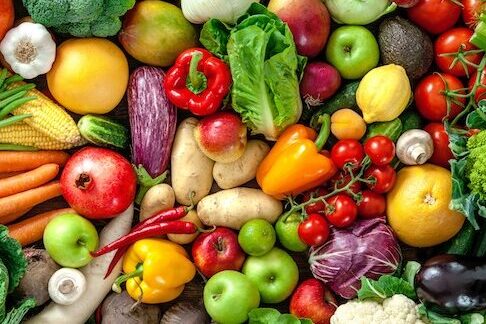What are Antioxidants and What do they do?
Antioxidants come up frequently in discussions about good health and preventing diseases. These powerful substances, which mostly come from the fresh fruits and vegetables we eat, prohibit (and in some cases even prevent), the oxidation of other molecules in the body. The benefits of antioxidants are very important to good health, because if free radicals are left unchallenged, they can cause a wide range of illnesses and chronic diseases such as cancer, diabetes and heart disease. Free radicals also contribute to the ageing process.
Antioxidants and free radicals
The human body naturally produces free radicals and the antioxidants to counteract their damaging effects. However, in most cases, free radicals far outnumber the naturally occurring antioxidants. Free radicals can be natural or man-made such as chemicals your body produces for turning food in to energy or environmental toxins such as alcohol, tobacco, pollution and UV light. In order to maintain the balance, a continual supply of external sources of antioxidants is necessary in order to obtain the maximum benefits of antioxidants. Antioxidants benefit the body by neutralizing and removing the free radicals from the bloodstream.
Different antioxidants benefit different parts of the body
There are a wide range of antioxidants found in nature, and because they are so varied, different antioxidants provide benefits to different parts of the body. For example, beta-carotene (and other carotenoids) is very beneficial to eye health ; lycopene is beneficial for helping maintain prostate health; flavonoids are especially beneficial for heart health; and pro-anthocyanidins are beneficial for urinary tract health.
Common Antioxidants include:
Vitamin A in milk, butter, eggs and liver
Vitamin C in most fruit and vegetables
Vitamin E in nuts and seeds
Beta, carotene in coloured fruit and vegetable such as carrots, squash, peaches, apricots spinach and kale
Lycopene is found in pink and red fruits such as tomatoes, pink grapefruit apricots and watermelon
Lutein is in green leaves such as spinach and kale
Selenium- in pasta, bread, grains, nuts, eggs and cheese
You can get most of these by eating a healthy diet which includes plenty of fruit, vegetables grains seeds and nuts.
Antioxidants and skin health benefits
When skin is exposed to high levels of ultraviolet light, photo-oxidative damage is induced by the formation of different types of reactive species of oxygen, including singlet oxygen, superoxide radicals, and peroxide radicals. These forms of reactive oxygen damage cellular lipids, proteins, and DNA, and they are considered to be the primary contributors to erythema (sunburn), premature aging of the skin, photodermatoses, and skin cancers.
Astaxanthin, followed by beta-carotene combined with vitamin E has been shown to be one of the most powerful antioxidant combinations for helping protect the skin from reactive species of oxygen.
Additional ways antioxidants help benefit one's health
Increasing one’s antioxidant intake is essential for optimum health, especially in today’s polluted world. Because the body just can’t keep up with antioxidant production, a good amount of these vitamins, minerals, phytochemicals, and enzymes must come from one’s daily diet. Boosting your antioxidant intake can help provide added protection for the body against:
- Heart problems
- Eye problems
- Memory problems
- Mood disorders
- Immune system problems

